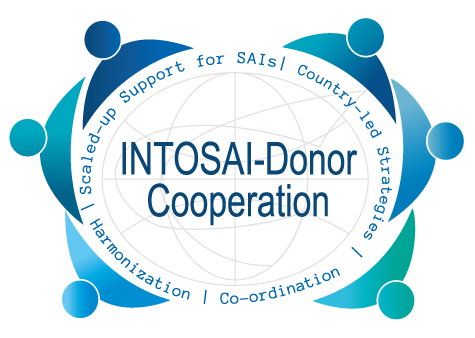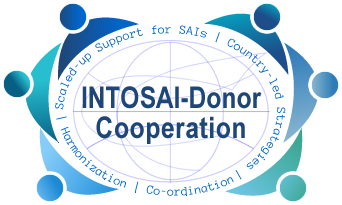About the INTOSAI-Donor Cooperation

Recognizing the importance of well functioning and independent SAIs, and that progress with donor support to SAIs so far has been varied, INTOSAI and the Donor Community have in recent years engaged in dialogue to develop a strategic approach to strengthen and maintain the capacity of SAIS.
The INTOSAI-Donor Cooperation was created in October 2009 when INTOSAI and 15 donors signed a milestone Memorandum of Understanding (MoU) to strengthen support to the Supreme Audit Institutions (SAI) community.
SAIs play an important role in strengthening domestic accountability and governance. They help governments improve performance, enhance transparency, ensure accountability, fight corruption, promote public trust, and foster the efficient and effective receipt and use of public resources for the benefit of their peoples. The work of SAIs in reducing waste and abuse of public resources also has the indirect effect of making more money available for programs for fighting poverty.
Donors
More donors have joined us over the years and currently 23 donors have signed the MoU:
|
|
Memorandum of Understanding between INTOSAI and the donor community
The MoU brings together all the SAIs and the Donor Community in a common approach that provides a strategic focus for donors and the SAI Community in strengthening SAI capacity in developing countries and a variety of mechanisms for facilitating donor funding and support in line with donor mandates, priorities and requirements. Donor support is provided through a hierarchy of activities, principally at the country level and then at the INTOSAI regional and INTOSAI global levels.
The MoU provides a common approach to increased strategic focus and coordination for donors and the SAI community in strengthening SAIs in developing countries. This entails:
- donors mobilizing additional funding for SAI strengthening
- increased strategic focus on the important role of SAIs in terms of governance, development and poverty reduction
- improved coordination of support to the SAI community
- better and more effective support initiatives.
Support will be provided through a hierarchy of activities, principally at the country level, and then at the regional and INTOSAI global levels. Because the support is to be demand-driven and sustainable, it should be based on strategic and development action plans.
IDC and IDI
The Steering Committee appointed IDI to provide administrative support to IDC, thereby recognizing the importance of INTOSAI ownership as well as IDI’s broad experience from SAI capacity building and the organization’s wide network within INTOSAI.
IDC seeks to achieve the goals set forth in the MoU through several ongoing initiatives, such as the Global Call for Proposals, the publication of Success Stories, and the hosting of the SAI Capacity Development Database. IDC’s strategic activities are executed by IDI’s Global Foundations Unit (GFU).
GFU is responsible for coordinating partnerships, measuring and maintaining data on SAIs, helping to broker support to SAIs, advocacy and communicating good practices and collaborating with the chairs and vice chairs of IDC between meetings.
GFU also coordinates activities with other key IDI work-streams including the teams managing Bilateral Support, SAI Independence initiatives and the SPMR and SAI PMF processes.
